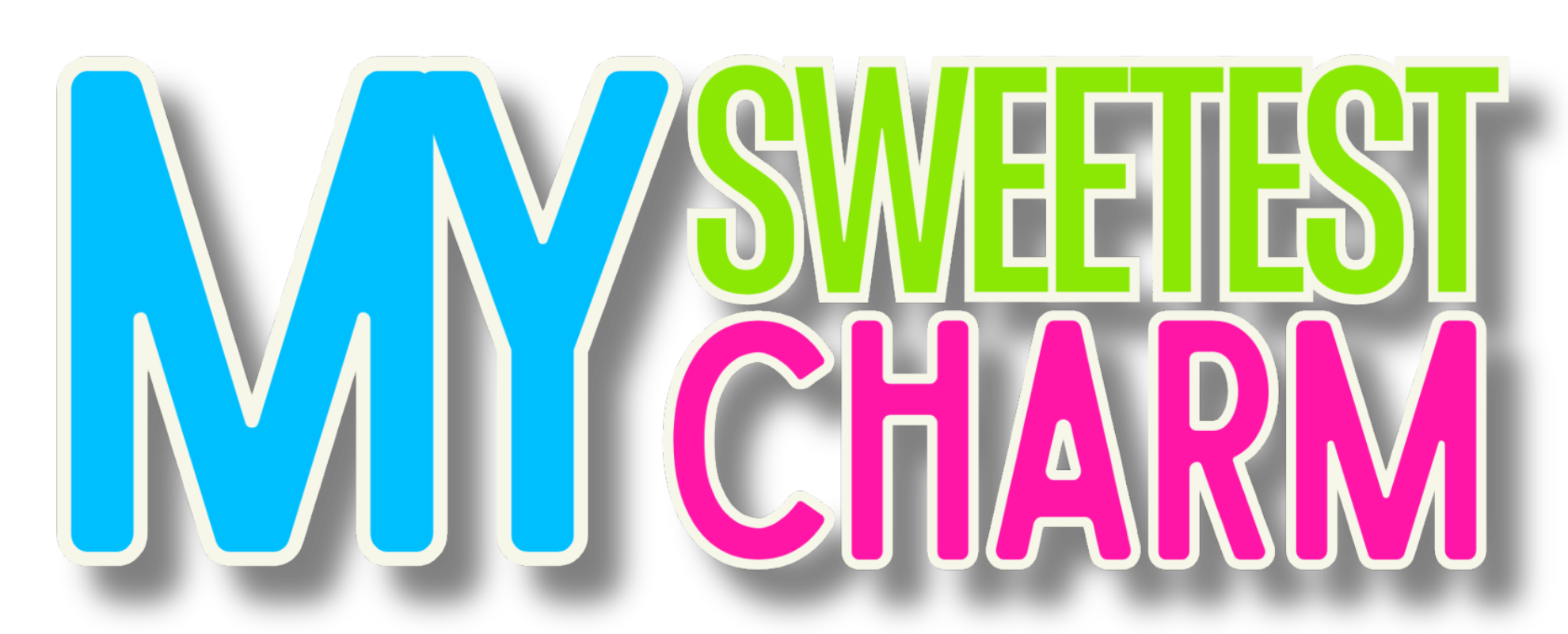Ever looked at others’ success and wondered what they have that you don’t? It’s a feeling many know well. Feeling stuck while others seem to thrive can be tough. But, the secret to growing personally is closer than you think.
As we move through our careers and lives, it’s natural to feel down when we compare ourselves to others. It seems like they’re moving forward, and we’re stuck. But, personal growth is unique to each person. It’s shaped by our own experiences and views.
Key Takeaways
- Understand the psychology behind feeling stuck and how it can impact your progress
- Learn to cultivate a mindset that fosters personal growth and success
- Identify and overcome self-sabotaging behaviors that hinder your progress
- Develop emotional intelligence to navigate career growth and professional relationships
- Create actionable goals and build habits that support your forward movement
In this article, we’ll look at why you might feel stuck while others seem to advance. We’ll share strategies and insights to help you move forward. By exploring personal growth, mindset, and practical steps, we’ll start a journey of self-discovery and empowerment.
Understanding the Psychology Behind Feeling Stuck
Ever felt like you’re stuck, unable to move forward? This feeling often comes from our mind’s complex workings. We’ll explore what makes us feel stuck, from biases to past experiences.
The Role of Cognitive Biases in Perceived Stagnation
Our minds have biases that affect how we see things and make choices. Biases like the sunk cost fallacy make us stick to old ways, even if they’re not working. Knowing these biases can help us break free from feeling stuck.
How Fear and Anxiety Contribute to Inertia
Fear and anxiety can really hold us back. The fear of failure or uncertainty can make us too scared to try new things. This fear can stop us from growing and moving forward.
The Impact of Past Experiences on Current Progress
Our past experiences, good or bad, shape who we are today. Traumas, disappointments, or successes can affect how we see ourselves and our abilities. Understanding this can help us overcome feeling stuck and move forward with confidence.
By grasping the psychological reasons for feeling stuck, we can start to grow again. The next step is to develop a deeper understanding of ourselves, which will help us move forward.

Why Others Succeed While I Feel Stuck: Breaking Down the Success Gap
Feeling stuck while others seem to achieve their goals is common. This “success gap” can make us feel frustrated. We wonder why we’re not making the same progress.
One reason others might seem to succeed more is their growth mindset. People who believe they can grow through hard work are more resilient. They see challenges as chances to learn, not as barriers.
Most successful people didn’t get there overnight. They worked hard for years, facing setbacks and learning from mistakes. Their success looks easy, but it’s really a result of their dedication and perseverance.
Our view of others’ success is often incomplete. We don’t see all the struggles they faced. Seeing things from a more empathetic view helps us understand that success is a complex journey.
To close the success gap, we need to change our mindset and actions. By focusing on personal growth and understanding others’ journeys, we can find our own path to success.
| Trait | Successful Individuals | Those Feeling Stuck |
|---|---|---|
| Mindset | Growth mindset: Believe abilities can be developed | Fixed mindset: Believe abilities are static |
| Perspective | Understand success is a journey, not an overnight event | Expect immediate results, unaware of the effort required |
| Resilience | Persistent in the face of challenges, learn from mistakes | Easily discouraged by setbacks, struggle to bounce back |
| Self-Awareness | Highly attuned to their strengths, weaknesses, and growth areas | Lack self-awareness, may be blind to areas for improvement |
By focusing on personal growth and keeping a balanced view, we can close the success gap. It’s time to stop comparing ourselves to others. Instead, let’s focus on becoming the best versions of ourselves.
The Hidden Power of Mindset in Personal Progress
Unlocking your full power often starts with how you think. Your mindset shapes your growth and resilience. Knowing the difference between fixed and growth mindsets can change your life.
Fixed vs. Growth Mindset: Which One Are You?
People with a fixed mindset think their skills are unchangeable. They shy away from challenges and feel threatened by others’ success. In contrast, those with a growth mindset believe they can grow through effort and dedication.
They see challenges as chances to learn and grow. They’re inspired by others’ achievements and keep going even when faced with obstacles.
Rewiring Your Brain for Success
Getting a growth mindset means seeing your growth possibilities. It’s about recognizing your ability to improve. By being self-aware, setting goals, and celebrating small victories, you can change your brain’s view of challenges.
This mindset shift opens up new paths for personal growth. It helps you reach your full capacity.
Building Mental Resilience
Resilience lets you bounce back from tough times. A growth mindset builds the mental strength to handle life’s ups and downs. Mindfulness, positive self-talk, and support from others help build this resilience.
Embracing mindset is a key step in your growth journey. It helps you overcome obstacles and find new paths to success.
Identifying and Overcoming Self-Sabotaging Behaviors
As we aim for growth, we often face our own self-sabotage. These habits hold us back and keep us from reaching our goals. To move forward, we must first recognize how we undermine our success.
Self-awareness is key to beating self-sabotage. We need to honestly examine our thoughts and actions. This helps us spot behaviors like procrastination and fear of failure that hold us back.
After identifying these habits, we can start to change. We can replace bad habits with good ones and challenge negative thoughts. With effort and a willingness to try new things, we can break free and reach our full capacity.
Common Patterns of Self-Sabotage
- Procrastination and delaying important tasks
- Perfectionism and the fear of not meeting unrealistic standards
- Negative self-talk and limiting beliefs about our abilities
- Avoidance of challenges or new opportunities
- Sabotaging relationships and support systems
Strategies for Overcoming Self-Sabotage
- Practice self-reflection and cultivate greater self-awareness
- Challenge negative thought patterns and replace them with more empowering beliefs
- Develop habits and routines that support your goals and personal growth
- Seek out support from trusted friends, mentors, or professionals
- Embrace a growth mindset and view setbacks as opportunities for learning and improvement
| Behavior | Underlying Cause | Strategies for Overcoming |
|---|---|---|
| Procrastination | Fear of failure, lack of confidence, poor time management | Break tasks into smaller, more manageable steps; use time-blocking techniques; reward yourself for progress |
| Perfectionism | Desire for control, fear of criticism, low self-esteem | Reframe success as progress, not perfection; practice self-compassion; focus on the process, not just the outcome |
| Avoidance | Anxiety, fear of the unknown, low self-belief | Gradually expose yourself to challenging situations; celebrate small wins; build your confidence and resilience |
By tackling our self-sabotaging habits, we can unlock our true abilities. This journey may be tough, but the rewards are worth it. We can make real progress in our lives.
Developing Emotional Intelligence to Navigate Career Growth
As we move through our careers, it’s more important than ever to understand and manage our emotions. Emotional intelligence, or EQ, is a key tool for personal and professional growth.
Understanding Your Emotional Triggers
Recognizing our emotional triggers is the first step in using emotional intelligence. By knowing what situations or people make us feel strongly, we can think before we act. This helps us stay calm and make better choices, even when things get tough.
Managing Professional Relationships
Emotional intelligence also helps us deal with work relationships better. It lets us work well with others, handle tough talks, and solve conflicts. By building strong work relationships, we can grow our careers and find new chances for success.
Building Self-Awareness in the Workplace
At the heart of emotional intelligence is self-awareness. Knowing our own feelings, strengths, and weaknesses helps us make smart choices at work. By thinking about our performance and listening to feedback, we can grow our careers.
Embracing emotional intelligence opens doors to personal and professional growth. It helps us understand our triggers, build strong relationships, and know ourselves better. These skills are essential for moving forward in our careers and finding happiness.
Creating Actionable Goals That Drive Progress
Setting clear goals is key to reaching our full potentials. Whether we’re growing personally or aiming high in our careers, setting meaningful goals matters. We’ll look at strategies to make goals that drive us forward and keep us motivated.
The SMART method is a great way to set goals. SMART means Specific, Measurable, Achievable, Relevant, and Time-bound. Using these criteria helps us create goals that are both challenging and reachable.
- Specific: Our goals should be clear and well-defined, leaving no room for ambiguity. Instead of a vague aspiration, we should ask ourselves exactly what we want to accomplish.
- Measurable: We need to establish concrete metrics to track our progress and celebrate milestones along the way. Quantifiable targets help us stay focused and motivated.
- Achievable: While we should aim high, our goals must also be realistically within our reach. Striking the right balance between challenge and feasibility is key.
- Relevant: Our goals should be meaningful and aligned with our core values and long-term vision. This ensures that our efforts are truly worthwhile and contribute to our overall personal growth.
- Time-bound: Establishing clear deadlines for our goals provides a sense of urgency and accountability, preventing us from procrastinating or losing focus.
But goal-setting is not just about creating SMART objectives – it’s also about maintaining the motivation and discipline to see them through. By consistently reviewing our progress, adjusting our strategies as needed, and celebrating small wins, we can sustain the momentum that propels us towards our desired outcomes.
The power of goal setting lies in its ability to turn dreams into real achievements. By embracing this practice and aligning our goals with our deepest passions and values, we can unlock new levels of personal growth and professional success.
| Goal Setting Strategies | Benefits |
|---|---|
| SMART Goal Framework | Provides a structured approach to setting clear, measurable, and achievable goals |
| Aligning Goals with Personal Values | Ensures goals are meaningful and contribute to overall personal growth |
| Regularly Reviewing and Adjusting Goals | Maintains momentum and adapts to changing circumstances |
| Celebrating Small Wins | Boosts motivation and reinforces progress |
Building Habits That Support Forward Movement
Habits are the base of our personal growth. They help us reach our full capacity and keep moving forward. We’ll look into how habits are formed, how to swap bad habits for good ones, and how to keep up with personal growth.
The Science of Habit Formation
Forming habits is a complex process. It involves our brain, the environment, and our actions. Research shows habits have a cue, a routine, and a reward. Knowing this helps us shape our habits for the better.
Replacing Limiting Habits with Empowering Ones
We all have habits that hold us back, like procrastination or unhealthy habits. To change these, we need to find out what triggers them. Then, we can replace them with better habits. This might mean starting a new routine or finding a new reward.
Maintaining Consistency in Personal Development
Growing personally takes time and effort. To keep growing, we need habits that support our goals. This includes learning regularly, reflecting on ourselves, and staying accountable. By creating a supportive environment and celebrating small victories, we stay motivated and disciplined.
| Habit | Cue | Routine | Reward |
|---|---|---|---|
| Morning Meditation | Waking up | Sit quietly for 10 minutes | Sense of calm and focus |
| Exercise | Alarm clock going off | Go for a 30-minute jog | Endorphin rush and improved energy |
| Reading Before Bed | Changing into pajamas | Read for 30 minutes | Relaxation and mental stimulation |
Understanding how habits work and shaping our routines can unlock their power. Remember, staying consistent is key. By building good habits, we pave the way for lasting success.
Leveraging Your Network for Growth and Opportunities
Personal growth, motivation, and emotional intelligence can be boosted by our professional network. Building meaningful connections and leveraging relationships opens doors to career growth, personal development, and emotional support.
Networking is more than just collecting business cards or attending events. It’s about creating genuine, mutually beneficial relationships. We should approach networking with a mindset of generosity, ready to provide value to our connections. This could mean sharing insights, mentoring, or just being a listening ear for our peers.
Strategies for Effective Networking
- Find and connect with people whose expertise or experiences match your goals.
- Join professional organizations, online communities, and events to grow your network and stay informed.
- Invest in your current relationships by regularly checking in, helping out, and celebrating each other’s wins.
- Use your network to find job leads, gain industry insights, or collaborate on projects.
- Give back to your connections by sharing useful information, making introductions, or providing emotional support.
Overcoming Networking Challenges for Introverts
Networking can be tough for introverts. But with the right approach, we can overcome these challenges and tap into our network’s power. Here are some tips for introverts:
- Focus on building a few meaningful connections instead of many superficial ones.
- Use technology like social media and online forums to connect in a more comfortable way.
- Prepare conversation starters and questions before networking events to feel more at ease.
- Look for smaller, more intimate networking events or one-on-one meetings.
- Use your strengths, like active listening and insightful comments, to make a strong impression.
By building a network that supports our personal growth, motivation, and emotional intelligence, we open up a world of possibilities. This can help us achieve both professional and personal fulfillment faster.
| Networking Strategies | Benefits |
|---|---|
| Identifying Relevant Connections | Access to expertise, insights, and opportunities aligned with your goals |
| Participating in Professional Organizations | Expanded network, industry knowledge, and possible collaborations |
| Nurturing Existing Relationships | Emotional support, referrals, and a reliable network to rely on |
| Offering Value to Connections | Strengthened relationships, goodwill, and possible returns |
Conclusion: Breaking Free from Stagnation and Moving Forward
Feeling stuck while others move ahead is common. But, it’s not impossible to overcome. We’ve learned about the role of mindset, goal-setting, and positive habits in breaking through.
The journey to growth isn’t always straightforward. Yet, by using strategies like emotional intelligence and networking, we can move past stagnation. Success is about your own journey, not comparing to others.
Remember to challenge your mindset, set clear goals, and replace bad habits with good ones. With determination and self-awareness, you can break free and reach your full capacity. The effort is worth it for the rewards of personal and professional growth.
FAQ
Why do others seem to move ahead while I feel stuck in my personal and professional life?
Feeling stuck while others move forward is common. It’s not always about their advantages. It’s about our mindset, habits, and how we grow. Understanding this can help us move forward.
What role do cognitive biases play in our perception of feeling stuck?
Cognitive biases can make us feel stuck. They include confirmation bias and the sunk cost fallacy. Recognizing and overcoming these biases helps us see our growth more clearly.
How do fear and anxiety hold us back from moving forward?
Fear and anxiety can stop us from growing. They make us avoid risks and stay in our comfort zones. Building mental strength helps us face challenges and reach our goals.
What is the difference between a fixed mindset and a growth mindset, and how can it impact our success?
A fixed mindset limits our growth. A growth mindset believes we can improve with effort. Adopting a growth mindset helps us overcome stagnation and reach our full capacity.
How can I identify and overcome self-sabotaging behaviors that are holding me back?
Self-sabotaging behaviors like procrastination hold us back. Understanding and changing these behaviors is key. This self-reflection helps us break free from stagnation.
What role does emotional intelligence play in navigating career growth and personal development?
Emotional intelligence is vital for growth. It includes self-awareness and empathy. It helps us make better decisions and seize opportunities.
How can I create actionable goals that drive meaningful progress in my life?
Setting SMART goals is key. Aligning goals with values keeps us motivated. This approach helps us achieve meaningful results in our lives.
What are the key habits and strategies for maintaining consistent personal growth and development?
Building empowering habits is essential. Understanding habit formation and staying motivated are important. These habits help us overcome stagnation and continue growing.
How can I leverage my network and relationships to create new growth opportunities?
Networking is a powerful tool for growth. Building a diverse network opens up new opportunities. It’s a key strategy for overcoming stagnation.















